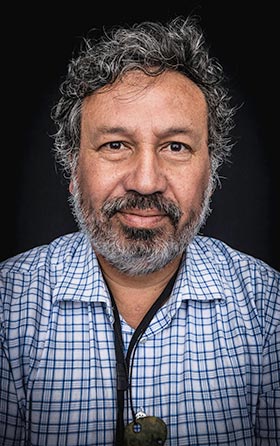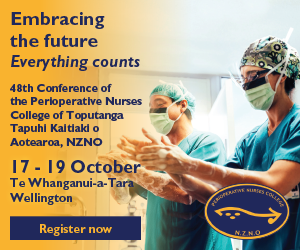
Like most whakataukī, it probably has as many subtle variations in meaning as there are iwi, hapū, that use it around Aotearoa/New Zealand.
But it is one of my favourite whakataukī because it has that compelling aspect of all the best proverbs — it is both simple and remarkably deep.
It suggests to me that we should always be prepared for change. If one house (kāinga tahi) is gone, another (kāinga rua) remains.
This is a time of change for nursing. It is also a time of change for this journal.
The health system as we have known it for the past two decades will be gone by this time next year.
District health boards will have vanished – in their place a single entity, Health NZ. There will be a Māori Health Authority with a budget to commission its own health services. Public health will also undergo substantial changes.
Alongside this, we have Health Minister Andrew Little tasking his ministry with devising a recruitment programme for nurses. Who knows, this could make a difference for our understaffed wards, clinics and practices.
And as many who attended the NZNO conference last month might already know, this journal is about to embark on its own changes.
It will take a giant leap into the future by switching to a completely digital presence. From the start of next year, we will publish entirely online.
Our kāinga rua will be the digital realm.
I’m personally excited by the change. What it means is that instead of our monthly publication, we can publish stories whenever we need to – whenever it is most important for our members.
We will, as always, continue covering all our members’ stories, faces, professional development opportunities, issues, academic research and industrial progress – all with a genuine commitment to Te Tiriti, biculturalism, equity and tikanga Māori.
So the best parts of the journal will remain, but with the added flexibility of a fully digital medium.
Over the next months we will be making sure members register for the website, so you can continue to read our stories – well, your stories, actually.
It is more important than ever that we work together, connect and maintain whangaungatanga over the next year.
Not only will we venture into the brave new world of the health reforms, we face a moment of truth for the nation and its COVID-19 response.
The Government has signalled that from next year it will look to begin to open up the nation again.
If border restrictions were relaxed, modelling from research centre Te Pūnaha Matatini suggests that with 90 per cent or more of over-5s vaccinated, plus moderate public health measures, the number of COVID-19 hospitalisations and deaths could be held to seasonal influenza rates.
However, the modelling suggests that with 80 per cent vaccination (over-5s) and moderate public health measures we could get 60,000 hospitalisations and 7000 annual fatalities.
Every nurse knows there would be no part of the system – primary, aged care, emergency, ICU, oncology, you name it – left undamaged by those numbers or their flow-on impact.
We have read the stories, seen the images as overseas health systems implode under the pressure of unvaccinated COVID-19 patients and the Delta variant.
I hope that the Government waits to achieve the critical higher rate of vaccination amongst vulnerable communities such as Māori. But the pressure to act will only build.
With these challenges, I’m glad we will be going forward together online – our kāinga rua for the years ahead. It seems to me to be the best, most agile, most flexible medium for making sure we connect and respond collectively.



